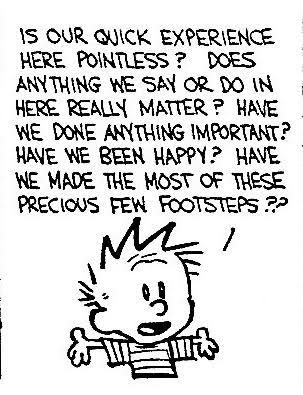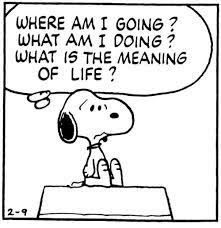What Is The Purpose Of Life? An Existentialist Point Of View
May 27, 2019 • 8 views
Europe has had its fair share of significant movements and concepts that made its stamp across the world. We read about the origins in our history textbooks, and learn about their contributions in our literature classes. One concept that has stuck with me whilst comprehending the multitude theories was existentialism and how it ironically permeates in our culture today.
Existentialism is a 20thcentury philosophy that centers on the analysis of existence and the reasons why people chose to exist in the world. It focuses on deciding how to live your life based on values, ethics and experience. Rooted deeply in historical specificity, existentialist ideas emerged at a time when there was a deep sense of despair following The Great Depression and the World Wars.

Existentialism can also be seen in the backdrop of the Holocaust, Stalin’s communist policy, African slavery and colonialism, the ‘comfort’ women of South Korea, the ‘geishas’ of Japan and so on. The optimism of society was destroyed but it was quickly penned down my philosophers and novelists who stated that even though they do agree that life is not optimally satisfying, it nonetheless has a meaning.
“What is the purpose of life?” was the core aspect of Existentialism. This was the question that revolved around in the minds of many as they tediously continued with life. Existentialism can be seen as a concept that be cannot be thwarted for its connection to a gruesome image of the past. It is continuously recurred in movies, books and poetry.

Speaking of which, certain novels come into play for their existentialist ideas.
‘Memoirs of a Geisha’ by chronicles the life of a young girl who is sold off to a family, and later becomes a prominent Geisha of her time. It showcases the livelihoods of young Japanese women during the World Wars, some of which are later shipped across America is be raped by American men. These women must split their legs just like how American men split open their bottles of soda, an idea perpetuated by the Coca Cola generation of that time.
‘The Unbearable Light of Being’ by Milan Kundera talks about how life is one giant observatory wheel, where one ‘observes’ someone else’s life because their own lives were dry. The latter’s amusement is a bridge to connect the boredom of the former’s life.
Some mentionable existentialists include: Albert Camus, Jean Paul Sartre, Franz Kafka, Kierkegaard etc.
As aforementioned, existentialism has unspeakably oozed into our lives at present. This is especially seen with the superficial lives we lead on social media. We often seek validation by the number of likes and favourites on social media networks, or else we compare ourselves to others. We have fewer genuine conversations face to face as we value the number of followers on our profile. The internet is very detrimental to our life’s purpose, because without other people ‘validating’ posts, we feel like our life does not have a purpose.
It’s scary to think how a concept that has not dictated social change for the past 100 years, is now having an omniscient presence in our fast-paced world.
